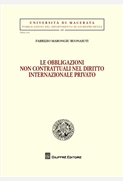Unfair Terms in Low-Cost Airline Contracts: A Spanish Court Takes a Bold Step
Many thanks to Cristian Oró Martínez, Senior Research Fellow at the MPI Luxembourg.
The Commercial Court (Juzgado de lo Mercantil) nº 5 of Madrid delivered on 30 September 2013 a judgment in an action brought by the Spanish consumer association Organización de Consumidores y Usuarios (OCU) against the Irish airline Ryanair. OCU asked the Commercial Court to declare that 20 of the general terms and conditions used by the airline are unfair, and hence should not be binding on consumers, as provided by the Spanish Law on the protection of consumers and users (which transposed Directive 93/13, on unfair terms in consumer contracts). OCU also sought an injunction to prevent Ryanair from continuing to use these allegedly unfair terms and conditions.
In its judgment, the Commercial Court held that 8 of the general terms issued by Ryanair are unfair, and hence void. These terms deal with a variety of issues relating to the contract of carriage concluded between the airline and its customers: (i) the choice of Irish law and the submission to Irish courts (Art. 2.4); (ii) the limitation of accepted travel documents (Art. 3.1.1 and annex on travel documentation); (iii) the 40 € fee for the re-issue of a boarding card at the airport (annex with table of optional fees); (iv) the possibility for the airline to refuse to carry passengers or their baggage (Art. 7.1.1); (v) the prohibition to carry in the checked baggage certain items, including money, jewels, cameras, computers, medicines, glasses, mobile phones, tobacco or passports (Arts. 8.3.2 and 8.3.3); (vi) the possibility for the airline to charge a storage fee for luggage not collected within a reasonable time (Art. 8.8.1); (vii) the possibility for the company to change the flight timing without having to justify it, and without giving the passenger the option to terminate the contract (Arts. 9.1.1 and 9.1.2); and (viii) the prohibition to pay in cash any fee or tax charged at the airport (Art. 18). According to the judgment, Ryanair should refrain from using these terms in future contracts.
To date, all these clauses continue to appear on the airline’s website. The judgment of the Commercial Court of Madrid can of course be appealed – and it is highly likely this has been the case. Its effective impact, therefore, remains to be seen. However, it may constitute a first step for the protection of consumers against alleged abuses by low-cost airlines.
Nevertheless, from a PIL perspective, the question which arises is whether the Spanish court was right in assessing the compatibility of the contract with Spanish consumer legislation. Ryanair claimed that the choice of Irish legislation was valid under Art. 5(2) of the Rome I Regulation, which allows parties to choose, among others, the law of the country where the carrier has its habitual residence. The court fails to address this allegation, and simply states that the choice of court and choice of law clause is invalid under Art. 90.3 of the Law on the protection of consumers and users. The reason would be that it causes a significant imbalance in the parties’ rights and obligations and hinders the consumer’s right to take legal action, insofar as it forces this weak party to litigate in a foreign country and under a foreign law, thus increasing the costs of the suit.
The Commercial Court bases its reasoning not only on the Spanish Law on consumer protection, but also on the provisions of Directive 93/13 and on some judgments in which the ECJ has interpreted it. It is arguable that, under Art. 23 of the Rome I Regulation, the Directive on unfair terms could trump the conflictual solution of Art. 5(2) of the Rome I Regulation. However, even in such scenario, the Commercial Court should have justified the reason why the Spanish transposition of the Directive on unfair terms should prevail over the Irish transposition. The problem stems from the Spanish Law on the protection of consumers and users, which purports to apply when the contract is closely connected with the territory of a State party to the EEA, irrespective of the law chosen by the parties (Art. 67.1). It is arguable that this provision should be read in light of Art. 6(2) of Directive 93/13, which states that “Member States shall take the necessary measures to ensure that the consumer does not lose the protection granted by this Directive by virtue of the choice of the law of a non-Member country”. Thus, the Spanish legislation should only prevail over the parties’ choice of a third-State law, but not over the choice of the law of a Member State. Indeed, in the latter case the protection granted by the Directive is in principle guaranteed – at least as long as the ECJ does not declare that that particular Member State failed to correctly transpose it.
Therefore, the assessment of all the allegedly unfair terms should have probably been carried out under Irish law. The ensuing question is: would they be held unfair under Irish law? Or even: should they be considered unfair under the Directive itself? If so, the ECJ may end up having its say in the issue. We shall keep an eye on future developments – just as low-cost airlines will surely also do.



 On 14 November 2013, the Court of Justice of the European Union delivered its judgment in
On 14 November 2013, the Court of Justice of the European Union delivered its judgment in  On 2 November 2013, the Assembly of the American Association of Private International Law (
On 2 November 2013, the Assembly of the American Association of Private International Law (